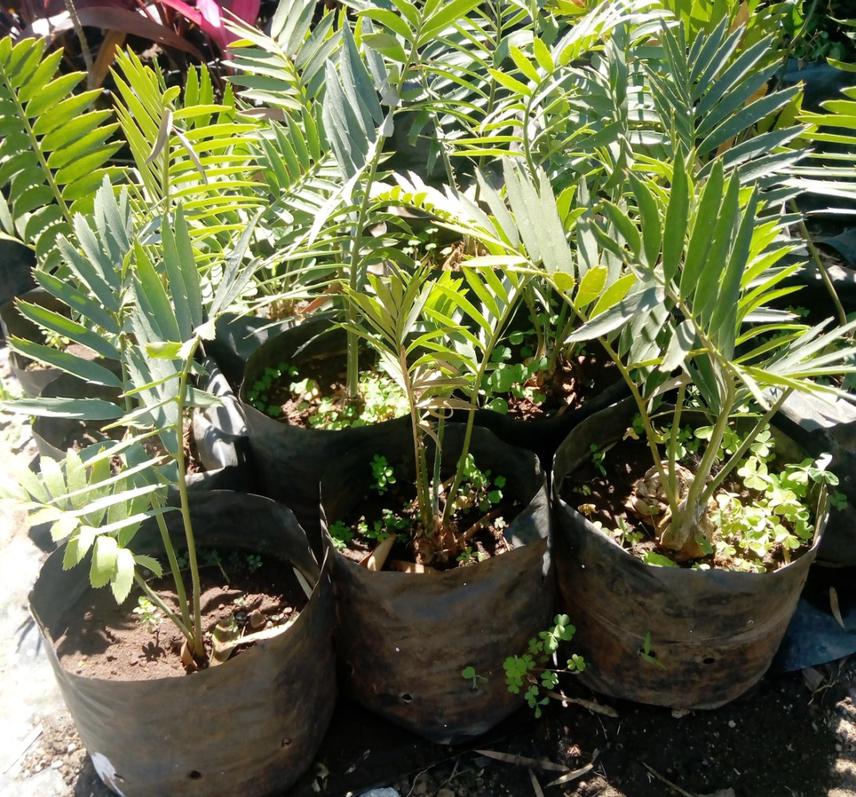Tarisai Nyamucherera
Other projects
13 Jul 2016
A Population Status Survey and Conservation Action Strategy for the Endangered Encephalartos chimanimaniensis (Chimanimani Cycad)
25 Jan 2018
Conservation Horticulture for the Encephalartos Chimanimaniensis, a Critically Endangered Cycad in Zimbabwe
In this project the conservation team will use seeds, small pieces of stem cut from the bottom with a few roots, cut off-side shoots (pups) and stem cuttings to propagate more plants ex-situ. Materials will be collected from multiple mother plants for a good representation of genetic diversity. The Encephalartos Chimanimaniensis will be produced for controlled reintroduction in the wild and later to the market. Additionally, the project will develop and implement a communication strategy to build support at a local and national level for Encephalartos Chimanimaniensis conservation based on a socio-cultural analysis of the values associated with the plant. The project will analyse how different groups of people from local farmers, to national environmental agencies and international conservation NGOs and agencies perceive the values, aesthetic, patrimonial, rarity and peculiarity, associated with the plant and how this can be used to support the conservation of the plant.

The Encephalartos Chimanimaniensis plant species faces serious extinction as they have been extremely decimated in the natural habitat due to poaching and other human activities. Building on the earlier Rufford Small Grants funded research projects 1) “A population Status Survey and Conservation Action strategy for the endemic and endangered Chimanimani Cycad” and 2) the “Conservation horticulture for the Encephalartos Chimanimaniensi, a critically endangered cycad in Zimbabwe”, this project will therefore focus on scaling up conservation horticulture for the Encephalartos Chimanimaniensis, a critically endangered cycad in Zimbabwe. Sustainably producing The Encephalartos Chimanimaniensis and making them available for reintroduction in the wild will pave way for renewed growth and later reproduction in a natural habitat. More so, selling reproduction material in different forms to the plant collectors’ market will in the long run help achieve the presently elusive goal of populations in the natural habitat.
To scale up a long-term Encephalartos Chimanimaniensis Conservation horticulture initiative, the conservation team will work to get 500 plant material including stem cuttings, offshoots/pulps and seeds propagated in a garden for reintroduction into the wild and later reproduction for the market. We believe if the market can be supplied with material for reproduction, the demand to poach adult plants from the wild will be diminished.
Building on the component from the last project where we coordinated a Encephalartos Chimanimaniensis identification programme to equip law enforcement officials with the necessary skills and knowledge to address the illegal trade in cycads and enforce the current moratorium, this project will develop and implement a communication strategy to build support at a local/national/international level for Encephalartos Chimanimaniensis conservation based on a socio-cultural analysis of the vales associated with the plant. We will analyse how different groups of people from local farmers, to national environmental agencies and international conservation NGOs and agencies perceive the values, aesthetic, patrimonial, rarity and peculiarity, associated with the plant and how this can be used to support the conservation of the plant. This protection will allow for a larger number of plants to remain in their native habitat, reproduce, and increase their population numbers. Through the training interventions, cycad enforcement networks and key contacts will be developed. These specialist focus enforcement groups will be available to share and assist with their skills and knowledge for other enforcement agencies when dealing with cycad crimes.